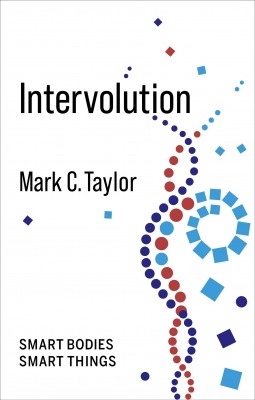
Intervolution
Smart Bodies Smart Things
by Mark C. Taylor
This title was previously available on NetGalley and is now archived.
Send NetGalley books directly to your Kindle or Kindle app
1
To read on a Kindle or Kindle app, please add kindle@netgalley.com as an approved email address to receive files in your Amazon account. Click here for step-by-step instructions.
2
Also find your Kindle email address within your Amazon account, and enter it here.
Pub Date Dec 08 2020 | Archive Date Mar 24 2021
Talking about this book? Use #Intervolution #NetGalley. More hashtag tips!
Description
Science fiction has long imagined a future fusion of humanity with technology. Today, many of us—especially people with health issues such as autoimmune diseases—have functionally become hybrids connected to other machines and to other bodies. The combination of artificial intelligence with implants, transplants, prostheses, and genetic reprogramming is transforming medical research and treatment, and it is now also transforming what we thought was human nature.
Mark C. Taylor identifies this process as “intervolution” and explores how it is weaving together smart things and smart bodies to create new forms of life. Our wired bodies are no longer freestanding individuals, but interconnected nodes in worldwide networks. Recognizing this transformation overturns deeply entrenched distinctions and oppositions between minds and bodies. Intervolution reveals that we are already cyborgs, integral cogs in what will become a superorganism of bodies and things.
Advance Praise
"Imagine your body. Imagine in it an artificial pancreas, and in the pancreas, an artificial brain. Now imagine that brain networked to—and learning from—thousands of matching pancreas-brains. What you are now imagining Mark Taylor has experienced and turns here into an absolutely riveting introduction into how artificial intelligence will transform us from the inside out. "
-Jack Miles, author of Religion as We Know It: An Origin Story
Available Editions
| EDITION | Other Format |
| ISBN | 9780231198219 |
| PRICE | $22.00 (USD) |
Average rating from 2 members
Featured Reviews
 Reviewer 781281
Reviewer 781281
4.75 stars. Where does technology end and humans begin? The book, Intervolution: Smart Bodies Smart Things, deliberates on the topic of the body and what that means when technology is used as extensions of themselves. Mark C. Taylor introduces the topic by discussing his personal experience using an insulin pump and what that means for the concept of the body. The topic is very interesting given how technology is increasingly an inescapable part of everyday life. The author explores what it means for technology to be used as a prosthetic (or the reverse of being a prosthetic to technology). The book considers dichotomies such as mind/body, natural/artificial and if these types of dichotomies are helpful or if they are overstated.
The book examines the topic by looking at various perspectives such as: philosophy, biology, technology, artificial intelligence. The book examined both the advantages and dangers of ubiquitous artificial intelligence and technology.
Given the introduction, I was expecting a bit on disability theories but that might have been a bit too off-topic. I was a bit hesitant when reading the technology aspects since some authors tend to emphasis technology too much and so end up writing like a technology determinism. The book did a good job covering both sides and that there are multiple ways that technology could be used.
Overall, the book is an interesting consideration of what it means technology means for the individuals' perceptions of the self.
I recommend this to anyone who is interested in exploring the mind/body dichotomy and how technology might impact that. I would also recommend this book to those interested in reading about artificial intelligence.
***I received an ARC copy from NetGalley***



